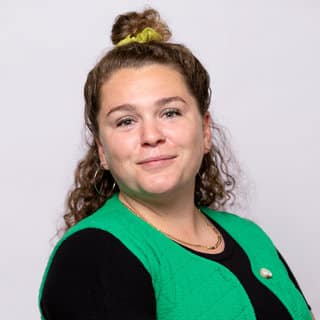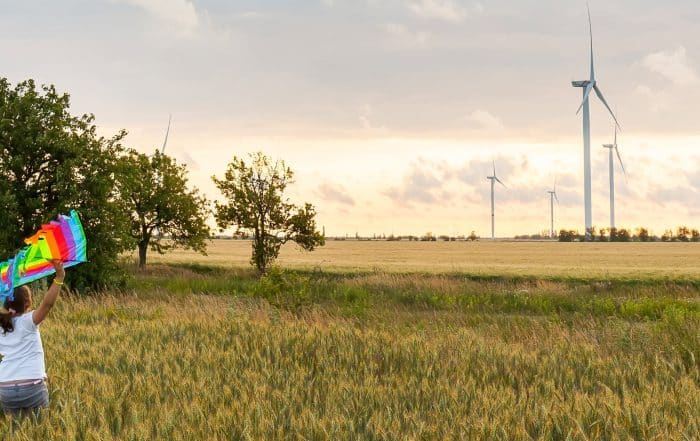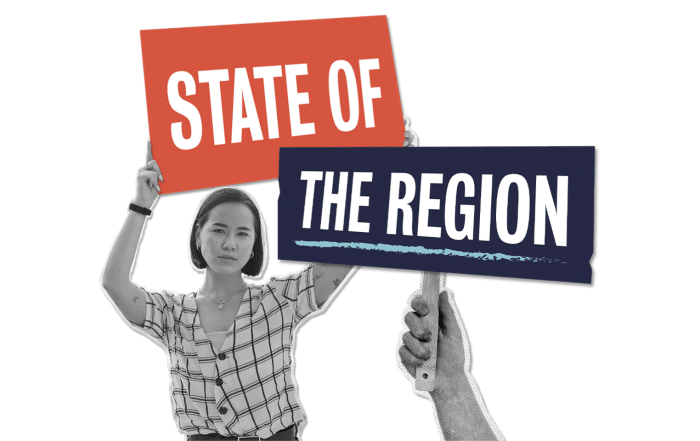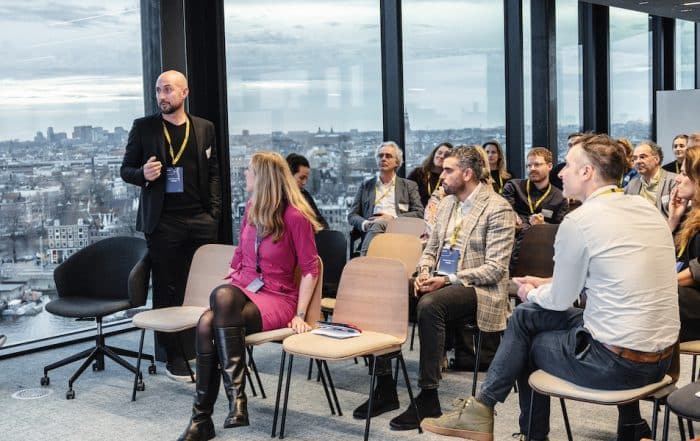Building local mini-economy within planetary limits
Growth is an end in itself, dictates the current economic model. For only growth would keep our economy going and be indispensable to further sustainability. At the same time, our planet is being depleted by this drive for green growth.
Is it time to abandon economic growth as a social ideal? And then what are workable, more social alternatives?
Shifting values
New economic mindsets shift the focus to an economy, aimed at restoring ecological and social values. Some examples include: Doughnut Economics, Post Growth and the Purpose Economy.
More and more business owners are opting for sustainable operations. They settle for less financial gain to do valuable work with positive social and environmental impact. The rise of the commons movement, housing-, energy- and food cooperatives, as well as social initiatives in health and welfare, show that people want to stand together for values other than financial gain.
Achievable and real alternatives
New economic models offer different perspectives for considering the economy as part of a society. They offer tools to make that economy more equitable and sustainable. Yet the new economic thinking is still often dismissed as unrealistic and unachievable. Only by trying out these theories in practice can we demonstrate that these are real alternatives.
New economic thinking, New economic acting
To experiment with new economic theory and models in practice, the Amsterdam Economic Board has started the New Economic Models exploration. In April, we introduced the living lab project “New Economic Thinking, New Economic Acting” at the Marineterrein in Amsterdam. In this we work on socio-economic experiments, together with AMS Institute, AHK Culture Club, And The People, Bureau Marineterrein, Kennisland, The Next Speaker and the knowledge coalition ‘Art, Tech & Science’.
The Marineterrein is the ideal place to do this because it is an official experiment site. Moreover, companies located here are often already working on circular and social projects. Cultural institutions and organisations at the Marineterrein, in turn, can represent what thriving without economic growth could look like and fuel our desire for a new economy.
Socioeconomic experiments
We’re exploring what it’d mean when we’d shift the focus from quantitative to qualitative growth. We’ll monitor expected and unexpected results with our partner AMS. This is how we and the region will learn what it takes for a local economy to thrive if it acts within planetary boundaries. Now we are working on four socioeconomic experiments:
Join us in our living lab!
Our old economic system is environmentally, socially and even economically unsustainable. New economic theories show how it could be done. At the Marineterrein, we put innovative economic theory and models into practice, through our New Economic Models exploration . We show that things can be fairer, more social and more sustainable. Everyone is cordially invited to experiment with us in our socio-economic living lab. Please send an email to Erik Lückers.
This is an updated version of a previously published article (in Dutch) on the living lab project ‘New Economic Thinking, New Economic Acting’.
14 June 2024
Read more about
Contact us
Want to keep up to date?
Get the best regional news and events (in Dutch) via the Board Update newsletter
Share this news
Want to keep informed?
Follow us daily on LinkedIn and sign up for the Board Update newsletter.
Read more
- On 14 and 15 October, board members of the Amsterdam Economic Board convened for ...
- Focusing more on women in health care innovation and research will have ...
- What is the Amsterdam Metropolitan Area’s position on critical raw materials? ...




